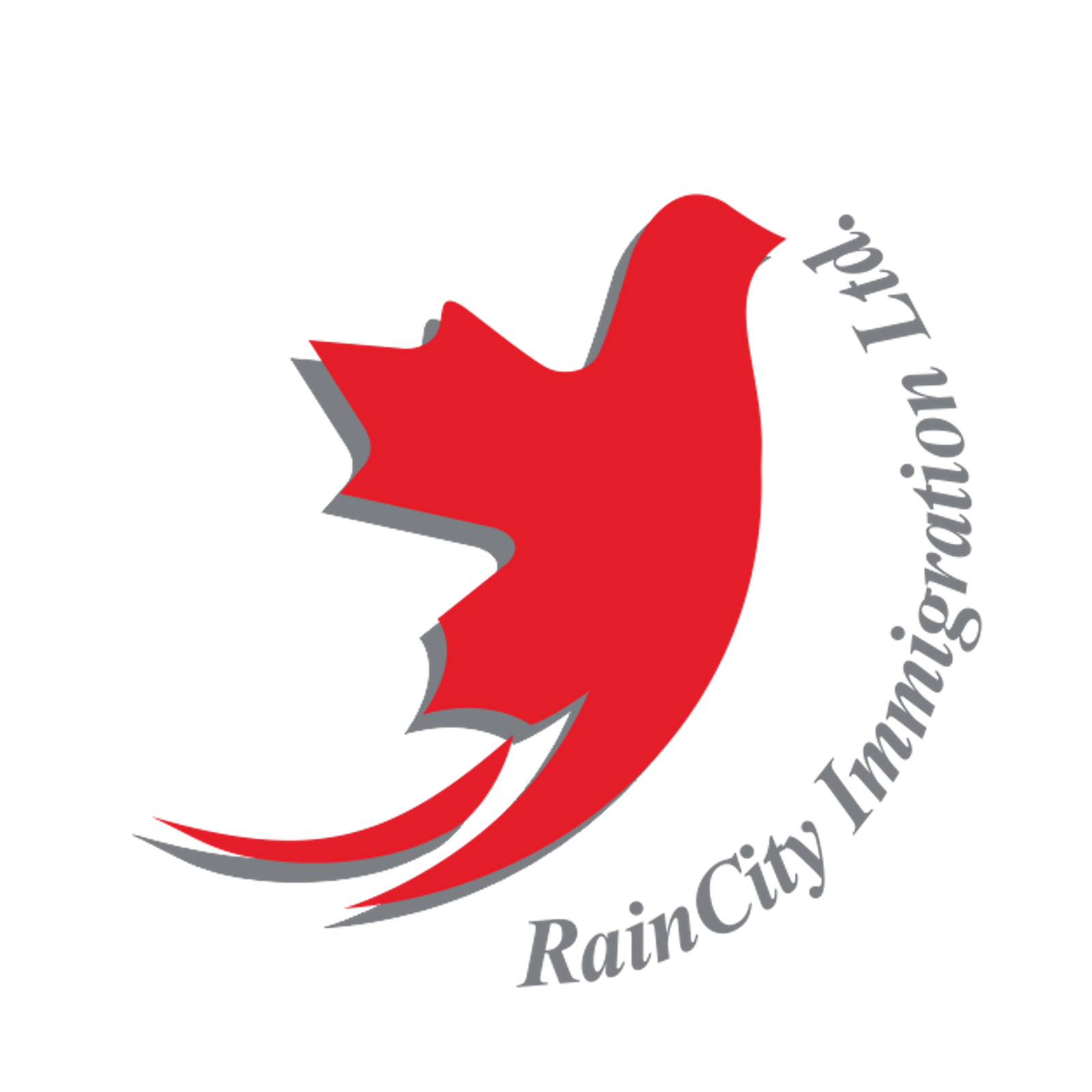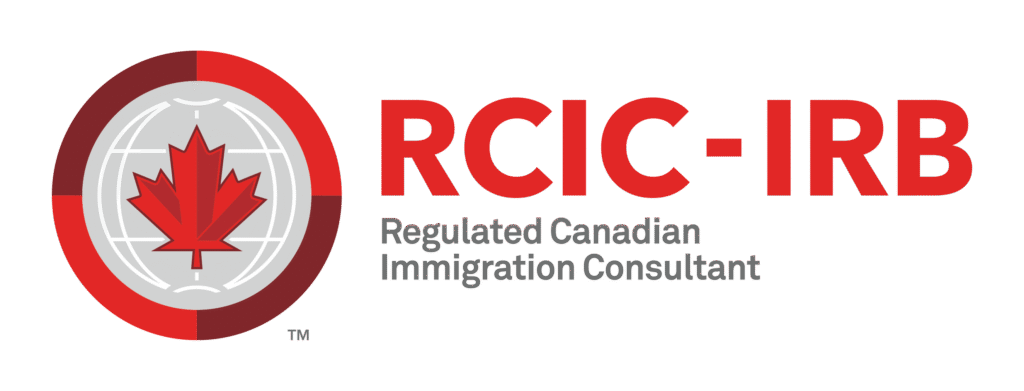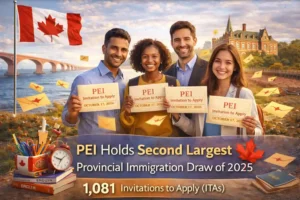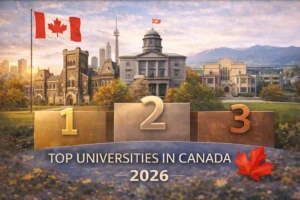Permanent residency in Canada after studying
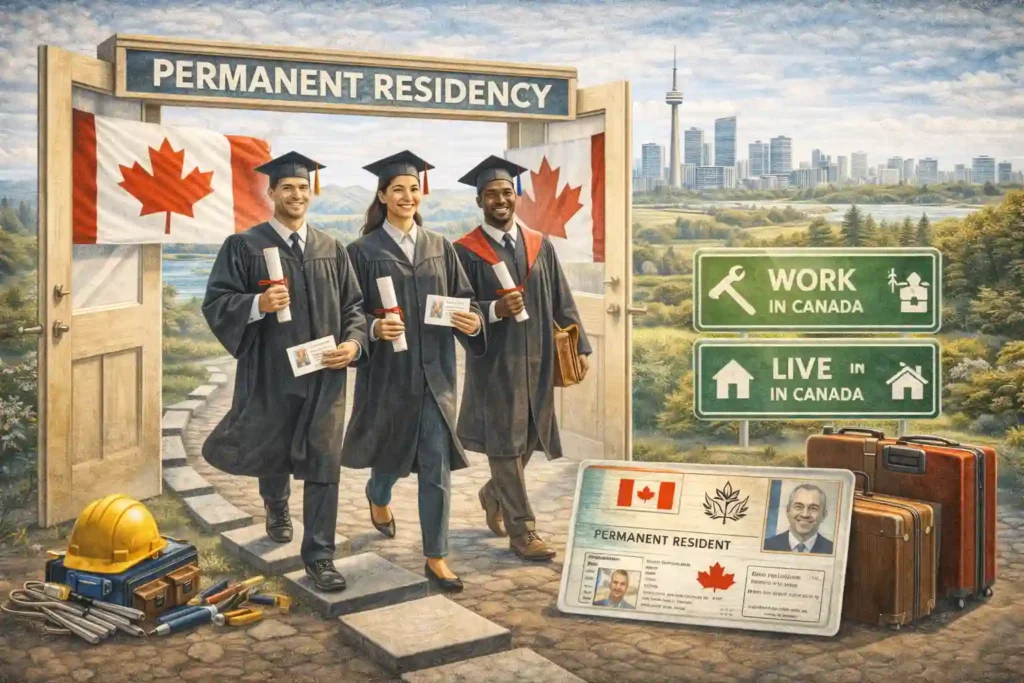
The Canadian government has facilitated permanent residency for foreign graduates in this country by offering diverse residency programs.
Obtaining residency in Canada through education is possible in two ways. Each of these two paths comes with its own set of residency programs. Below, we’ll introduce the two methods that lead to permanent residency in Canada through education.
How to get permanent residency in Canada after studying?
If you have completed your studies at one of Canada’s DLI (Designated Learning Institution) universities or colleges and wish to stay in Canada to obtain permanent residency after your studies, this can be done through the federal residency pathways, which are common across all provinces, as well as provincial pathways to become a permanent resident in Canada.
Federal pathways to obtain permanent residency in Canada
Canada’s Express Entry system is an immigration program that the Canadian government launched in 2015 for individuals to immigrate to Canada and obtain permanent residency. This system is applicable to all of Canada.
Express Entry itself has programs you can use as a graduate from a Canadian institution to gain residency after studying in Canada:
Canadian Experience Class
The Canadian Experience Class program, which is processed through the Express Entry immigration system, is one of the fastest ways to obtain permanent residency in Canada. This program is well-known among students who graduate from Canadian institutions and universities.
To apply through this program, certain factors are required, and you must achieve at least the minimum score based on these factors. These factors include age, language skills, level of education, and one year of work experience in Canada.
If you qualify for the Canadian Experience Class program:
Create an Express Entry profile.
Based on your circumstances, you’ll be given a score called the CRS score, which will enter you into the database.
You’ll be ranked in the database according to the score you’ve achieved.
If you’re among those with a high rank and score, you’ll receive an Invitation to Apply (ITA) from the Immigration and Citizenship Canada, which is the authorization to apply for permanent residency in Canada.
After receiving the invitation, send your documents to Immigration Canada and submit your application for permanent residency in Canada.
Federal Skilled Worker
The Federal Skilled Worker program, or the Skilled Worker program, is another one of the Express Entry system options that can be a pathway to permanent residency in Canada for some graduates who studied in Canada. Unlike the Canadian Experience Class (CEC) program, the Federal Skilled Worker (FSW) program does not require Canadian work experience, but you must have worked for at least one year outside of Canada.
The FSW is a merit-based immigration program where applicants with high scores successfully receive invitations and are authorized to apply for permanent residency in Canada. If you are a graduate who has never had work experience, you cannot apply for permanent residency in Canada through this program.
Options for obtaining permanent residency in Canada related to each province
In addition to the methods previously mentioned, each of Canada’s provinces has its own immigration programs known as PNP (Provincial Nominee Programs). The conditions for each provincial immigration program in Canada or PNP differ from one another and have different functions.
As a graduate student from Canada, you can apply for permanent residency in Canada after graduation through provincial immigration programs.
Provincial immigration programs are generally suitable for individuals who have a background in studying or working in that province. After obtaining residency through a province, there’s no obligation to stay in that province, and you can work and live anywhere in Canada.
Quebec's immigration system
The province of Quebec in Canada has its own immigration system, and the required conditions and immigration process are different from other provinces in Canada. If you are one of the students who have completed your studies in Quebec, you can apply for permanent residency in Canada through Quebec’s immigration programs.
Quebec has two main immigration programs, which include the following:
Quebec Experience Program (PEQ)
To be eligible for the PEQ program, you must have completed your studies at one of the universities or institutions in Quebec. You must also have advanced French speaking skills.
Quebec Skilled Worker (QSW)
This program is suitable for students who have completed their studies in Quebec or are in the process of completing them. Unlike the Quebec Experience Program (PEQ), this program does not require mandatory French language skills, but you must have at least the minimum required score to apply.
Converting a study permit to permanent residency in Canada
Statistics of students who obtained permanent residency in Canada after graduation – by province – from 2015 to January 2022
| Province | 2015 | 2016 | 2017 | 2018 | 2019 | 2020 | 2021 | January 2022 |
|---|---|---|---|---|---|---|---|---|
| Ontario | 2725 | 2430 | 3555 | 3755 | 4335 | 3030 | 10490 | 895 |
| British Columbia | 1425 | 1505 | 1565 | 1980 | 2345 | 1635 | 4615 | 610 |
| Quebec | 1575 | 1695 | 1670 | 2050 | 1335 | 915 | 2600 | 230 |
| Alberta | 1700 | 1450 | 1300 | 1405 | 1455 | 975 | 2145 | 180 |
| Manitoba | 300 | 295 | 295 | 435 | 570 | 395 | 965 | 80 |
| Saskatchewan | 465 | 495 | 585 | 695 | 555 | 300 | 625 | 85 |
| Nova Scotia | 125 | 130 | 165 | 225 | 345 | 210 | 540 | 60 |
| New Brunswick | 110 | 110 | 90 | 160 | 305 | 135 | 340 | 45 |
| Prince Edward Island | 60 | 75 | 120 | 130 | 155 | 75 | 155 | 20 |
| Newfoundland and Labrador | 65 | 80 | 55 | 105 | 145 | 65 | 145 | 25 |
| Yukon | 5 | 0 | 0 | 10 | 15 | 0 | 40 | 0 |
| Northwest Territories | 0 | 0 | 10 | 0 | 5 | 5 | 15 | 0 |
| Nunavut | 0 | 0 | 0 | 0 | 0 | 0 | 0 | 0 |
| Total | 8565 | 8270 | 9410 | 10950 | 11565 | 7750 | 22670 | 2235 |
Statistics of students who obtained permanent residency in Canada after graduation – by immigration program – from 2015 to January 2022
| Program | 2015 | 2016 | 2017 | 2018 | 2019 | 2020 | 2021 | January 2022 |
|---|---|---|---|---|---|---|---|---|
| Canadian Experience | 1210 | 990 | 2165 | 1505 | 1545 | 1230 | 8200 | 435 |
| Provincial Nominee Program (PNP) | 2175 | 2075 | 2330 | 3355 | 4060 | 2865 | 4615 | 360 |
| Family Sponsorship | 1615 | 2030 | 1640 | 2050 | 2120 | 1300 | 3195 | 370 |
| Asylum | 555 | 440 | 700 | 910 | 870 | 700 | 1845 | 140 |
| Federal Skilled Worker | 2080 | 1860 | 1700 | 1995 | 1575 | 885 | 1645 | 145 |
| Temporary Residence to Permanent Residence (TR2PR) | 0 | 0 | 0 | 0 | 0 | 0 | 1370 | 525 |
| Atlantic Program | 0 | 0 | 0 | 90 | 325 | 130 | 430 | 55 |
| Investment in Canada | 440 | 420 | 410 | 570 | 400 | 190 | 315 | 50 |
| Startup Visa | 5 | 10 | 5 | 15 | 50 | 30 | 60 | 0 |
| Skilled Trades | 15 | 25 | 50 | 30 | 50 | 30 | 30 | 0 |
| Self-Employment | 40 | 20 | 15 | 40 | 55 | 30 | 25 | 5 |
| Home Caregiver | 65 | 45 | 60 | 55 | 55 | 15 | 20 | 0 |
| Entrepreneur Visa | 10 | 20 | 35 | 20 | 20 | 10 | 10 | 0 |
Conditions for Obtaining Permanent Residency in Canada Through Study
Each immigration program related to permanent residency in Canada has its specific requirements and minimums. Depending on which immigration program you choose, you’ll need to meet its necessary factors and conditions. Most Canadian immigration programs for students use a points-based system.
For example, to apply through the Canadian Experience Class immigration program, you must meet the following criteria:
Have 12 months of Canadian work experience equivalent to 1,560 hours within the three years prior to your application.
Your work must have been done legally in Canada with a valid work permit and under temporary residency status.
Your job must fall under the National Occupational Classification (NOC) categories TEER 0, 1, 2, or 3.
For jobs in TEER 2 and 3, you need a CLB 5 score (equivalent to IELTS with a listening score of 5, reading 4, writing 5, and speaking 5), and for TEER 0 and 1 jobs, you need a CLB 7 score (equivalent to IELTS with a listening score of 6, reading 6, writing 6, and speaking 6).
You don’t need a degree, but graduating from Canadian universities or colleges and obtaining a diploma will earn you extra points.
Proof of financial support is not required for this immigration program.
Time Required to Obtain Permanent Residency in Canada
The time it takes to receive permanent residency in Canada varies across different immigration programs:
| Immigration Program | Time to Obtain Permanent Residency |
|---|---|
| Canadian Experience Class (CEC) | 6 months |
| Federal Skilled Worker (FSW) | 6 months |
| Provincial Nominee Programs (PNP) | On average 12 months |
The stated times are calculated from the invitation date and the submission of the application for permanent residency in Canada.
Frequently asked questions
Is it possible for all international students to immigrate and obtain residency in Canada through study?
No. To apply for Canadian permanent residency after studying, you need to meet specific conditions. For example, for some immigration programs, your study program must be at least 8 months long, and the university must be recognized by the Canadian immigration authority or, in other words, have a Designated Learning Institution (DLI) status.
What should you do after finishing your studies in Canada?
In general, once you finish your studies in Canada, your residency permit in the country will expire, and you will have to leave. To extend your stay in Canada, you need to apply for a work permit and start your permanent residency (PR) process.
How long can you stay in Canada after completing your studies?
Graduates can stay and work in Canada for up to 3 years with a post-graduation work permit.
What does permanent residency look like after studying in Canada?
Depending on the province where you studied, there are rules for staying after graduation.
What happens to my visa if I drop out?
The university corresponds with Canadian immigration, and you have to leave Canada.
I have a file for Canadian residency; can I also apply for study?
Yes. But you should consult with your advisor to avoid any issues.
Is it possible to drop out and work in Canada?
Yes. As long as you can sign a formal work contract with a Canadian employer.
Do I need medical examinations and a police clearance certificate to obtain permanent residency in Canada?
Yes. You need to include all these documents in your application.
Do I need to provide proof of financial ability for obtaining permanent residency through studying?
If you are applying through the Canadian Experience Class immigration program, you do not need to provide proof of financial ability.
I’m working in Canada with a work permit. Does this count as a job offer?
No. A work permit is not a job offer. A valid job offer is issued by the employer and specifies a full-time job offer for a period of one year.
Is it possible to get Canadian permanent residency after returning to my country?
Yes, as long as you meet the conditions for obtaining permanent residency through studying, you can apply for Canadian permanent residency.
